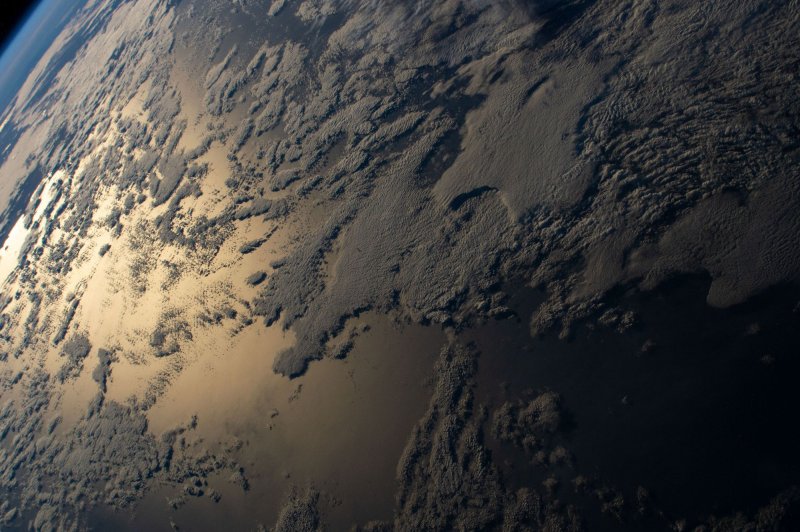By Doug Cunningham

Water on Earth, including that found in the Indian Ocean in June 2021, likely was not brought here by a meteorite or asteroid, but rather resulted from materials already present in proto-Earth before its collision with the planet Theia 4.45 billion years ago.
Photo by NASA/UPI | License Photo
Feb. 17 (UPI) -- Earth either started off with water or was hit by something that brought it here, and scientists now say that it's most likely the planet was "born" with the key to life.
Researchers at the Lawrence Livermore National Laboratory came to this conclusion by analyzing the isotopic make up of lunar rocks, according to the new study, published Thursday in journal PNAS.
The Earth-moon system formed after the impact of two large bodies -- proto-Earth and an early planet called Theia -- and researchers say the origin of "volatile species" such as water is hotly debated because of the expectation of volatiles loss in the impact itself.
"Earth was either born with the water we have, or we were hit by something that was basically pure H2O, with not much else in it," study co-author Greg Brennecka, a cosmochemist in nuclear and chemical science division at LLNL, said in a press release.
Feb. 17 (UPI) -- Earth either started off with water or was hit by something that brought it here, and scientists now say that it's most likely the planet was "born" with the key to life.
Researchers at the Lawrence Livermore National Laboratory came to this conclusion by analyzing the isotopic make up of lunar rocks, according to the new study, published Thursday in journal PNAS.
The Earth-moon system formed after the impact of two large bodies -- proto-Earth and an early planet called Theia -- and researchers say the origin of "volatile species" such as water is hotly debated because of the expectation of volatiles loss in the impact itself.
"Earth was either born with the water we have, or we were hit by something that was basically pure H2O, with not much else in it," study co-author Greg Brennecka, a cosmochemist in nuclear and chemical science division at LLNL, said in a press release.
By examining the isotopic makeup of lunar rocks the team of scientists found that the bodies involved in the impact that formed the Earth-moon system both had very low levels of volatile elements prior to impact.
Theia likely already had lower levels of volatile elements -- like the early proto-Earth -- when both formed in the early Solar System, researchers said.
"There were only a few types of materials that could have combined to make the Earth and moon, and they were not exotic," study lead author Lars Borg said in the release.
The two bodies -- proto-Earth and Theia -- likely formed in the same area of the solar system and, about 100 million years ago, ran into one another, Borg said.
The finding suggests that water was present at depleted levels in the proto-Earth and Theia before the collision, and that after the impact -- which happened not longer than 4.45 billion years ago -- the makings of both Earth and the moon were already present.
The researchers said water on Earth likely was inherited from its precursor bodies, while the volatile element-poor moon is made up mostly of remnants of Theia -- which means that water was not delivered to Earth by another heavenly body.
"This work eliminates meteorites or asteroids as possible sources of water on Earth and points strongly toward the 'born with it' option," Brennecka said.
No comments:
Post a Comment